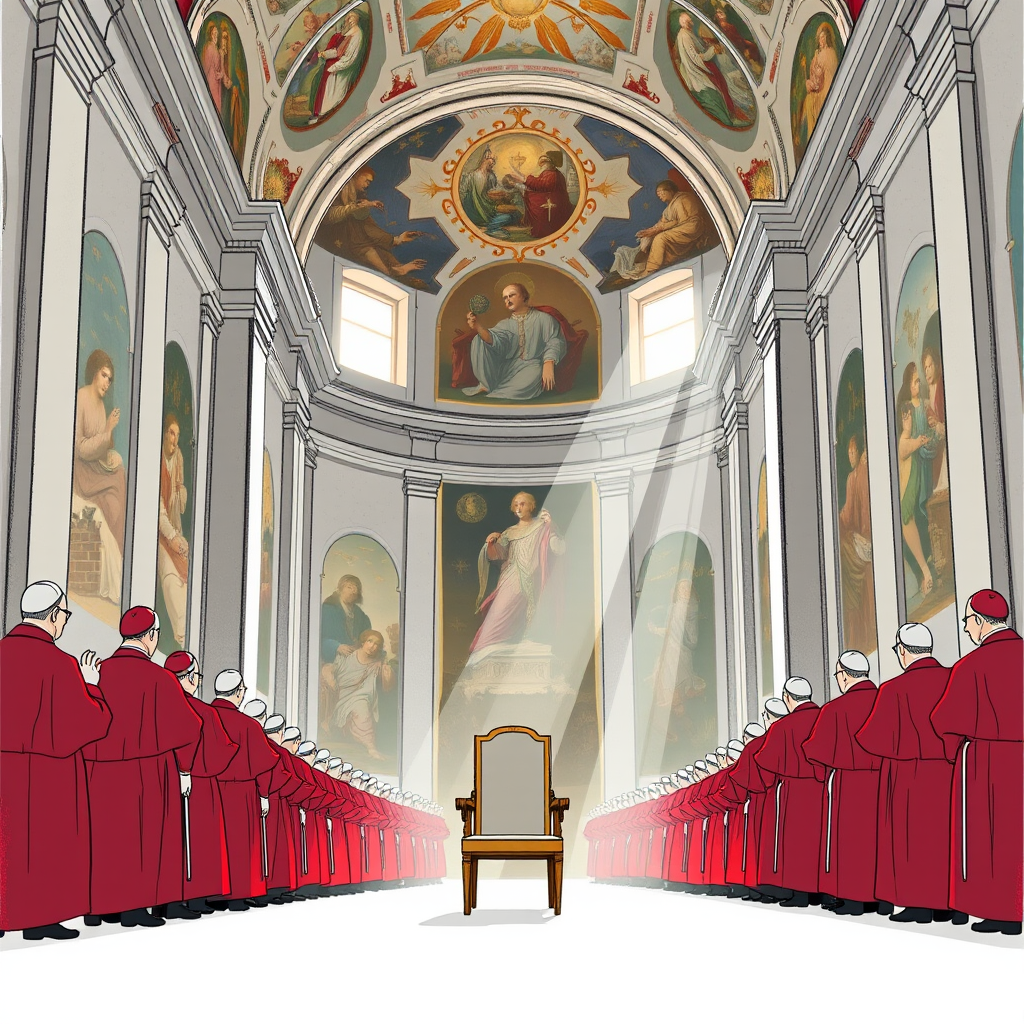New Pope Search Begins: Cardinals Set Date

Vatican City – Cardinals are set to convene Monday to determine the date for the conclave that will elect the next Pope, following the death of Pope Francis last week. The gathering of “Princes of the Church” from around the globe began arriving at the Vatican after the 88-year-old pontiff’s passing on April 21st, but clear frontrunners remain elusive.
The selection process is particularly unpredictable this time, according to Spanish Cardinal Jose Cobo, who noted the diverse and largely unfamiliar composition of the electorate. Unlike previous conclaves where trends were more apparent, this group includes many cardinals from outside Europe who have limited prior interaction.
Pope Francis’s funeral and burial on Saturday drew an estimated 400,000 mourners to St. Peter’s Square, including royalty, world leaders, and pilgrims. Crowds continued to visit his tomb at the Santa Maria Maggiore Basilica on Sunday, honoring the “pope of the poor” who chose burial outside the Vatican walls.
As the Church navigates a period of global conflict and diplomatic strain, Italian Cardinal Pietro Parolin, who served as Francis’s Secretary of State, is widely considered a leading candidate. Bookmakers place him slightly ahead of Filipino Cardinal Luis Antonio Tagle and Ghanaian Cardinal Peter Turkson. Other potential successors include Pierbattista Pizzaballa, Robert Sarah, and Matteo Zuppi.
The cardinals’ deliberations extend beyond simply choosing a successor; they are also assessing the direction of the Church. Professor Roberto Regoli of the Pontifical Gregorian University believes the cardinals will prioritize finding a leader capable of fostering greater unity within a Church experiencing increasing polarization.
The atmosphere within the Vatican has been described as “open” by Italian Cardinal Giuseppe Versaldi, with a focus on spiritual considerations rather than political maneuvering.
Of the 252 cardinals, only 135 are under the age of 80 and eligible to vote. A significant 80 percent of these electors were appointed by Pope Francis, though this doesn’t guarantee a continuation of his policies. Many are first-time participants in a conclave, adding to the uncertainty.
The voting will take place in the Sistine Chapel, steeped in tradition and governed by strict rules. The process could span several days, requiring a two-thirds majority to elect a new Pope. With fewer than half of the electors hailing from Europe, the next pontiff is likely to represent a more global perspective.
Central African Republic Cardinal Dieudonne Nzapalainga emphasized the need for a leader with a “universal heart” and the courage to navigate an era of instability.
This conclave feels particularly pivotal. Pope Francis undeniably left a lasting impact, championing compassion and challenging established norms. However, his reforms also sparked division, particularly within conservative factions. The cardinals face the complex task of honoring his legacy while also addressing the challenges facing the Church in a rapidly changing world. The selection of the next Pope will not only determine the spiritual guidance of 1.4 billion Catholics but also signal the future direction of one of the world’s oldest and most influential institutions.